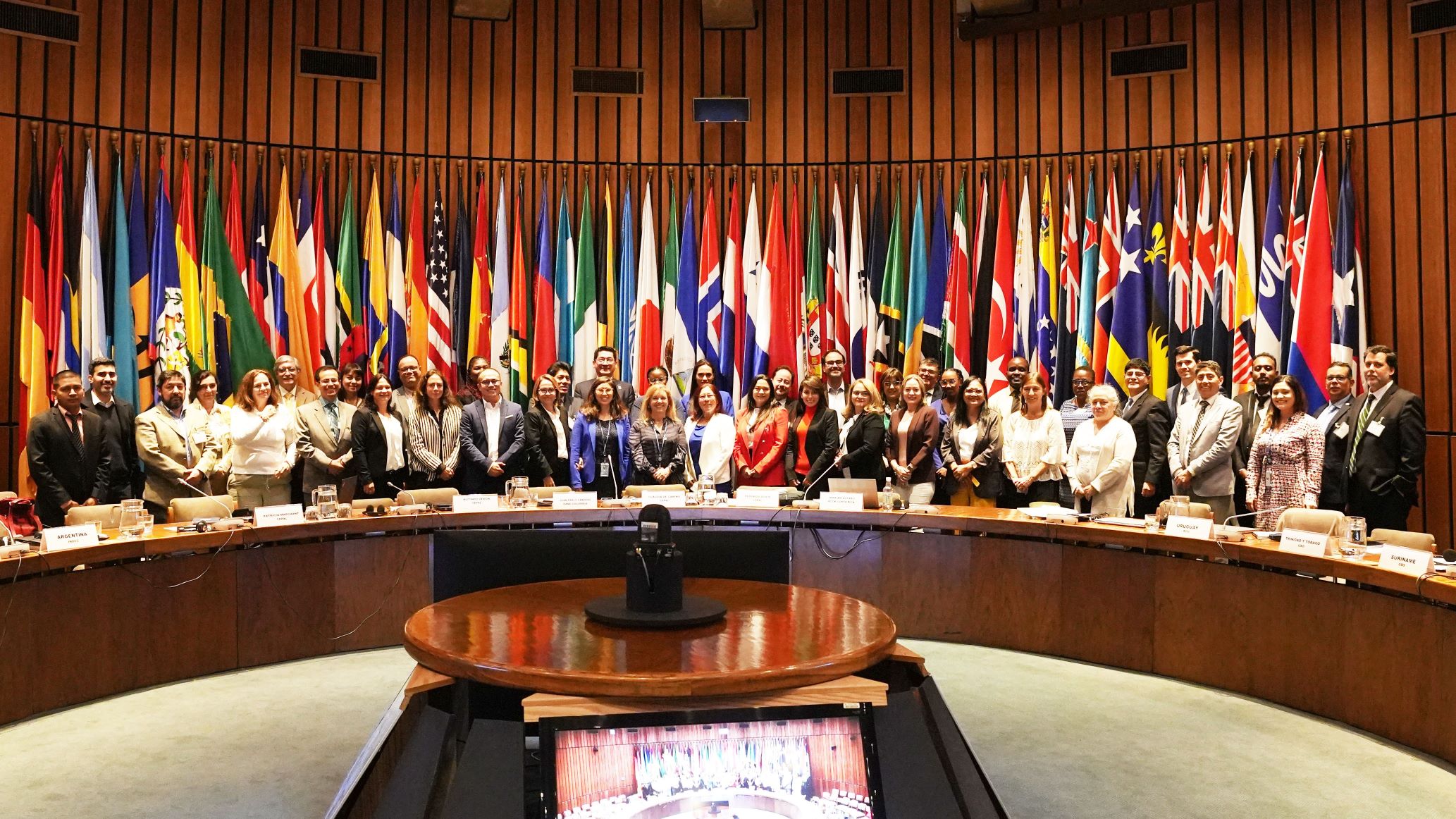Seminar on reconciliation of information sources for the measurement of income distribution
Work area(s)
Teaser
This seminar is held in hybrid format (in-person and virtual) on 12 October 2023, at the ECLAC headquarters. The construction of the household account, distributive accounts and measurement of inequality will be addressed, also incorporating information on the distribution of tax income.
Event information
Date
12 Oct 2023, 06:00 - 15:00Event type
Inequality is one of the outstanding features of Latin American societies and overcoming it is a key challenge for development. Household surveys, the main source for measuring income inequality, may be affected by the lack of information on households with very high incomes, as well as by possible under-reporting of income. As a result, measures of inequality based exclusively on this source of information may underestimate the magnitude of the phenomenon.
To capture income inequality more fully, it is possible to combine information from household surveys with information from income tax records, especially relevant for higher income earners, and with national accounts, which provide a frame of reference on the total amount of national gross income that is distributed to households.
ECLAC Statistics Division implements the project "Inequality: Innovative approaches for examining inequality through integration of different data sources in Latin America and the Caribbean", with the support of the United Nations Development Account (13th tranche). The project addresses the possible integration of income data from household surveys, tax records and national accounts, to produce estimates of income inequality.
Objectives
- Review the progress in the incorporation of distributive elements in the SNA 2025
- Learn about the methodologies to measure inequality by combining data from surveys, tax records and National Accounts
- Analyze the challenges for the production of household accounts and their timely updating
- Identify the usefulness of income tax data for measuring inequality
- Discuss possible areas for improvement
Programme of work
Welcome and introduction
- Rolando Ocampo, Director of the Statistics Division of ECLAC
Distributive accounts and measurement of inequality
Presentation(s)
Brechas conceptuales y cuantitativas entre encuestas y cuentas de hogares
Distributional results in line with National Accounts
Cuentas nacionales distributivas: Aspectos metodológicos y resultados para América Latina
A brief assessment of the Distributional National Accounts Agenda in Latin America
Recent experiences with distributive accounts
Presentation(s)
Cuentas nacionales distributivas: Experiencia de Costa Rica
Construction of the household account
Presentation(s)
Cuenta de Hogares. Aspectos conceptuales y metodológicos
Cuentas de Hogares: Fuentes, métodos, resultados
Fuentes y métodos para construir la Cuenta de Hogares en México
Uses of administrative and tax records on income
Presentation(s)
Reconciliando fuentes en la práctica: Problemas, soluciones y más problemas
Retos institucionales y comunicacionales para impulsar el desarrollo de nuevas metodologías para la medición de la distribución del ingreso
Experimental National Welfare Statistics (NEWS): combining administrative and survey data to improve income and poverty statistics
Integración de Encuestas con Registros Administrativos
Related content

Annual Seminar on National Accounts for Latin America and the Caribbean, 2023: Advances and challenges
The annual Seminar on national accounts for Latin America and the Caribbean, 2023 is held in hybrid format (in-person and virtual) on 10 and 11 October 2023, at ECLAC headquarters.
Organizing institution
Economic Commission for Latin America and the Caribbean (ECLAC)
- https://www.cepal.org
- 56 222100000